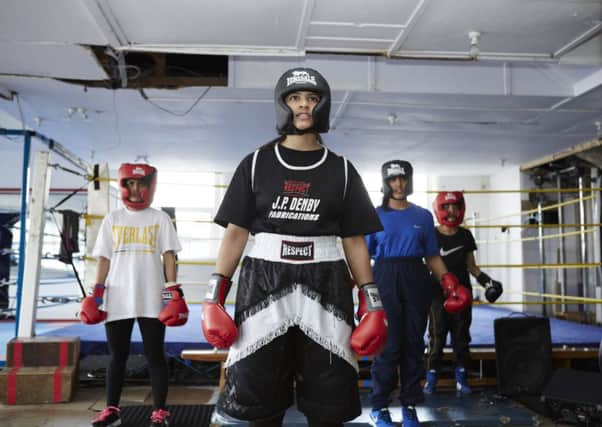Joyce McMillan: Tears should reflect big picture


The show was Handspring Puppet Theatre’s Ubu And The Truth Commission, first seen in Johannesburg in 1997, yet still supremely relevant in an age when the impunity of those who commit crimes against humanity continues to fuel rage and conflict across the world.
And what was immediately striking about this show – in the context of Edinburgh 2014 – was how little it cared to be liked, or to invite empathy for its characters. Based on Alfred Jarry’s great absurdist classic Ubu Roi, the show has two human characters who are defined by their obscene grotesquery, each as repellent as the other. Apart from that, it has music, cartoons, animations and puppets, and although some of the puppets depict heart-stopping little fragments of humanity, the fast-moving and ironic political context in which they sit allows little time to dwell on the obvious pity and horror of their stories.
Advertisement
Hide AdUbu And The Truth Commission, in other words, is a good late-20th-century Brechtian show, which uses layer upon layer of alienation effects to compel us to think about the political meaning of what we are seeing, instead of merely wallowing in the suffering of Ubu’s victims. And it struck me how rare this rigorous approach to theatre has become, particularly on a Fringe where – this year more than ever – the word-of-mouth recommendation “It made me cry” seems to have become a key yardstick of serious dramatic success.
The common experience of family bereavement, for example, has become one of the dominant subjects for solo drama on the Fringe, although essentially – in most cases – there is nothing dramatic about it, and a lot that is merely self-indulgent. Conversely, I heard one theatregoer opine that she was disappointed with the gorgeous female boxing show No Guts, No Heart, No Glory because “it didn’t make me cry” – this of a show clearly designed not to reduce audiences to quivering heaps of emotion, but to rouse us to an understanding of how young women can be empowered by stepping away from the expectations imposed on them, and working together to make something different of their lives.
And it’s easy enough to imagine, of course, how the old Marxist Brecht would have scorned this bourgeois idea that the main purpose of theatre is to give a brief thrill of emotional release to generally privileged audences. Emotion has a huge role to play in theatre, and Brecht sometimes overstates his case against it. Yet the truth is that in order to matter, dramatic emotion has to be hard-earned, and tightly bound to other human capacities for thought, argument, irony; and Brecht was surely right in his core wish that we, the audience, should not seek to “lose ourselves” in a play, but to find ourselves – to wake up to the full truth of where we are and who we are, as we watch these performers enact this story on this particular day.
Paradoxically, of course, it’s Brecht’s great play Mother Courage that offers one of the most moving theatrical scenes of all time, when – towards the end – Courage’s dumb and heavily-scarred daughter Kattrin, now grown too old for children of her own, sacrifices her life by banging a drum to waken a town full of children about to come under attack. Brecht brings us to that hard-earned scene, though, not by pressing a few obvious emotional buttons, but by taking us on a hugely complex three-hour journey through the whole bitter landscape of humanity at war. And in theatre, tears that come much more easily than that should always be treated with caution; as a badge of authentic individual experience that can often be conveniently bereft of any wider meaning, or – heaven forbid – of any hint that positive social change might be possible, and just within our collective grasp.